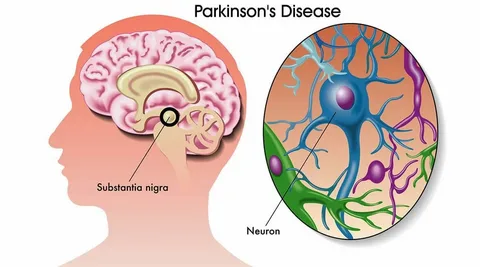A research breakthrough in the treatment of Parkinson’s Disease has recently surfaced, offering promising and long-lasting effects without side effects. The findings, published in Nature Communications under the title “Enhanced Production of Mesencephalic Dopaminergic Neurons from Lineage-Restricted Human Undifferentiated Stem Cells,” present a significant development in the treatment of this debilitating disease.
Leading the DANDRITE group, Associate Professor Mark Denham spearheaded the research, developing a method that ensures a much higher purity of dopamine cells, which play a crucial role in Parkinson’s disease. While stem cells offer potential for treating the disease by transforming into specific nerve cells, the precision of this transformation has been a considerable challenge with existing methods, resulting in low purity. Denham explains that achieving high purity is essential for effectively restoring movement in patients.
In the Denham Lab, stem cells were genetically modified to prevent the generation of incorrect types of nerve cells. As a result, the engineered stem cells demonstrated an enhanced ability to produce the specific nerve cells required for the treatment of Parkinson’s, known as dopaminergic cells.
Furthermore, the researchers demonstrated that the genetically modified stem cells led to the restoration of movement in animal models. This breakthrough presents a potential new therapeutic approach for patients with Parkinson’s disease.
Experiments performed on rats revealed that both the quantity and purity of cultured stem cells are crucial for the number and duration of treatments. By utilizing genetically modified cells, the researchers achieved higher purity of dopamine cells. For patients, this translates to reduced recovery time, decreased risk of relapse, and reduced reliance on medication. Denham aims to help patients stay off medication, which necessitates high purity. As the next step, Denham plans to transfer his method to clinical trials.
This groundbreaking research holds great promise for individuals living with Parkinson’s disease, as it offers a potential treatment that can provide long-lasting effects without adverse side effects. By enhancing the production of mesencephalic dopaminergic neurons, researchers have made significant progress in the field of Parkinson’s disease treatment. The ability to restore movement in animal models showcases the potential of this new therapeutic approach. As this method moves into clinical trials, it may bring significant benefits for patients, reducing their reliance on medication and improving their overall quality of life. The future of Parkinson’s treatment is rapidly advancing, and this research serves as a beacon of hope for patients and their families.
*Note:
1. Source: Coherent Market Insights, Public sources, Desk research
2. We have leveraged AI tools to mine information and compile it



